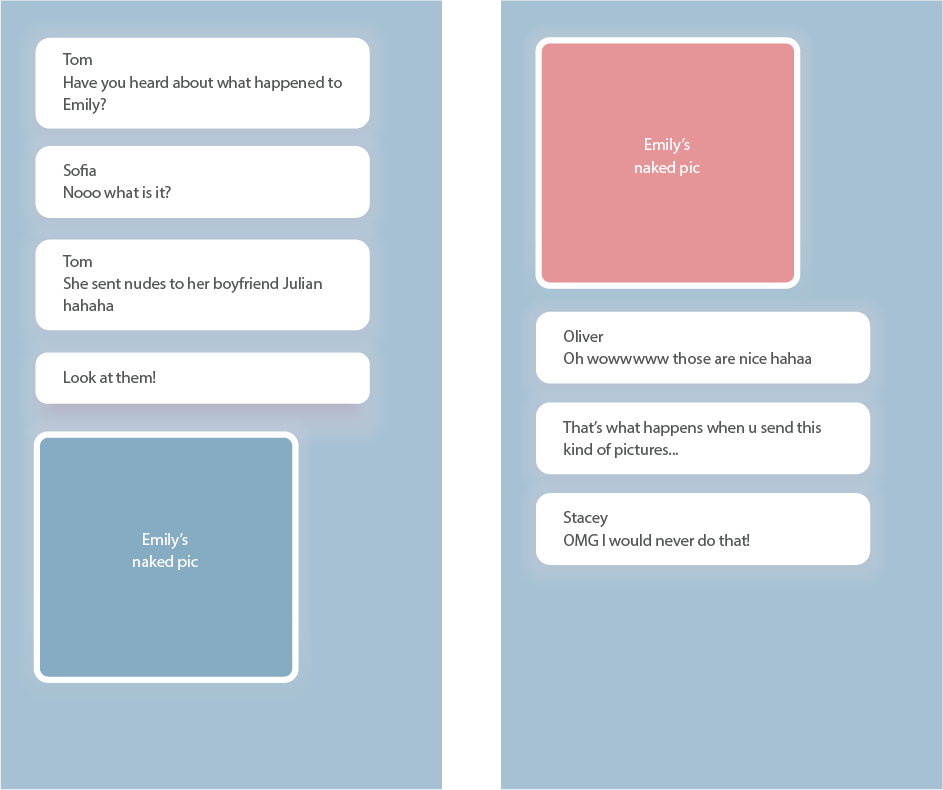Bystander
Don’t just watch, be a good Samaritan and report violence or injustice you see in your environment. If you are afraid, you don’t have to do it directly, but tell your parents, teachers, responsible institutions or call a helpline.

Imagine you’re a member of this chat group.
If you think sharing Emily’s photos is not ok, but you didn’t say anything to the others or reacted in any way to show your disagreement, it means your decision falls into bystander behavior.
What does this mean?
There are several reasons why people don’t react in such situations:
- They fear for their own safety
- They think someone else present will react, so there is no need for them to interfere
- They don’t want to be in a confronting situation
- They don’t think their reaction will change anything
BYSTANDER BEHAVIOR refers to behavior of persons who, alone or together with other persons, witnessed a scene of violence, but didn’t react.
IT’S IMPORTANT TO REMEMBER:
– It these situations it often happens that WHILE WAITING FOR SOMEONE TO REACT – NO ONE ACTUALLY REACTS. At the same time, IF AT LEAST OF PERSONS REACTS – OTHER PEOPLE FIND COURAGE TO DO THE SAME!
– The person being exposed to violence, be it offline or online, can feel very lonely, scared and additionally hurt by no one providing support.
– In addition to this, by not reacting we are sending a message to the perpetrator of the violence that what they are doing is ok and that we are silently supporting them in their actions.
– Still, when someone who is witnessing a violent situation does react – the perpetrator will often change their behavior, because they will see there is no support for what they’re doing!
This is why we want to encourage you to think about all the similar situations that happened in your environment (and we know that very similar situations often happen on the internet, in comments or chat groups!)
What can you do in such situations?
Besides directly turning to the person who is being violent and showing them what they’re doing is not ok, there are other things you can do.
You can call your friends to react together, especially if you are afraid – a reaction of a bigger group will surely have a stronger effect than that of just one person standing up to such behavior..
TAlso, you can turn to someone older for help – depending on whether the violence is happening in your school, the street, online, you can ask your parents, school staff for advice or call a helpline for more information.
In serious situations it is always good to contact the police by calling 911.
Additionally, even if you were afraid to or you had some other reasons for not reacting immediately, you can later privately turn to the person who was exposed to violence, ask her how she is and if she needs anything. It’s the least you can do, and it will mean a lot to the person who survived the violence as you will show them that they have support and they are not completely alone in this situation!
That’s why we are inviting you to switch from the role of passive bystander to a person who reacts to violence!